American Procedurals | Top Ten Series Writers
From beat cops patrolling rough neighborhoods to rogue detectives with their own ideas of justice, the American police procedural has myriad forms. Yet at its core, this subgenre of crime fiction is about law, order, and all the small but necessary tasks that must happen to close cases, be they homicides or petty thefts. Just like in real-life police work, other cases may intrude on the main event, tugging at the protagonists’ attention.
The authors listed below, and their iconic heroes and heroines in blue (and plainclothes), prove that you don’t necessarily need a booming metropolis to tell a suspenseful tale with a cop at its center. Of course, being near somewhere like Los Angeles, with its substantial murder rate, doesn’t hurt. Unlike across the pond, where many writers of British procedurals are women, the majority of the formative voices of the genre in this country are male, which results in a list that’s unfortunately unbalanced when it comes to gender. Here are ten of the best writers of American police procedurals, arranged alphabetically to avoid any favoritism.
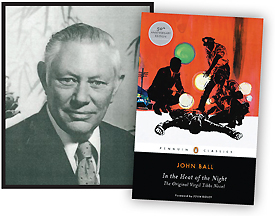 John Ball
John Ball
(1911–88) Best known for his 1965 debut, In the Heat of the Night, which won the Edgar Award for Best First Novel and was later transformed into an Oscar-winning film starring Sidney Poitier, Ball introduced readers to a new kind of cop: black homicide detective Virgil Tibbs. In Night, Tibbs is passing through South Carolina—he’s based in Pasadena, CA—and becomes involved in a murder investigation. Subsequent installments, including 1972’s Edgar-nominated Five Pieces of Jade, saw Tibbs back on the West Coast, investigating crime but still encountering racial bigotry. In celebration of the 50th anniversary of In the Heat of the Night, Penguin Classics released a trade paperback edition in December; this book, along with two other titles in the series (The Cool Cottontail; Johnny Get Your Gun) are available as ebooks from RosettaBooks. Photo © Keith O. Bancroft
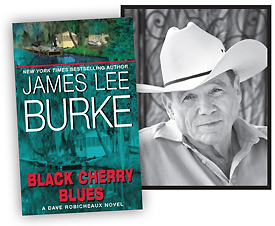 James Lee Burke
James Lee Burke
In Burke’s long-running series, set primarily in Louisiana, deputy sheriff Dave Robicheaux is a Vietnam veteran with a penchant for the bottle and a problem with authority. He first appears in 1987’s The Neon Rain, in which he’s a cop in New Orleans, though that doesn’t end well, and throughout the series, Robicheaux moves around the state, with Burke richly evoking a new corner of the bayou at every turn.
A 1990 Edgar winner for his third Robicheaux installment, Black Cherry Blues, Burke is one of only a handful of writers to win two such Best Novel awards (the other was for 1997’s Cimarron Rose, which features a Texas attorney and former Texas Ranger). Robicheaux was last seen in 2013’s Light of the World. Photo by Frank Veronsky for Simon & Schuster
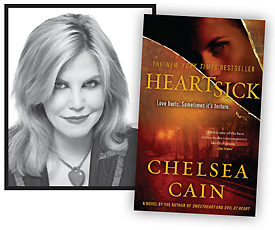 Chelsea Cain
Chelsea Cain
While it’s a given that most cops chase criminals, Cain’s Portland, OR–based detective, Archie Sheridan, is not only relentlessly pursuing but is relentlessly pursued by a serial killer named Gretchen Lowell. They have, let’s just say, a thing. In Cain’s 2007 debut, Heartsick, Sheridan is only barely back on the job after being released by Lowell—not before she carved a few things into him, though. Throughout the series, Lowell, known as the Beauty Killer, will be in (2011’s The Night Season) and out (2013’s Let Me Go) of custody but never far from Sheridan’s thoughts.
In Cain’s world, the cops are just as interesting, and as damaged, as the criminals they’re pursuing. There are six titles in the series so far (Heartsick; Sweetheart; Evil at Heart; The Night Season; Kill You Twice; and Let Me Go), and fans hope that Cain will write more, in addition to her new series, featuring Kick Lannigan (first one is 2014’s One Kick). Photo by Laura Domela
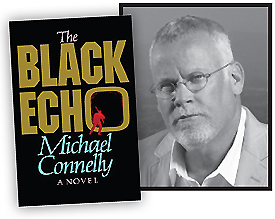 Michael Connelly
Michael Connelly
Debuting in the Edgar Award–winning The Black Echo (1987), Connelly’s LAPD detective Harry Bosch is one of the defining characters of the modern American police procedural. He’s tough but fair, driven but just. Bosch is so well known around the City of Angels that Connelly and fellow Los Angeles crime-writing heavyweight Robert Crais even acknowledge the existence of each other’s characters in their respective works. Crais’s PI Elvis Cole had a blink-and-you’ll-miss-it appearance in Connelly’s 2003 Bosch novel, Lost Light, and Bosch strolled into Crais’s The Last Detective (also 2003). Now enjoying his second season as the star of Amazon’s television series Bosch, Connelly’s iconic cop returns to print this fall in The Wrong Side of Goodbye (Little, Brown, Nov.). Photo by Mark DeLong Photography
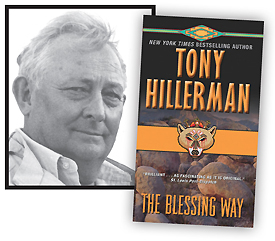 Tony Hillerman
Tony Hillerman
(1925–2008) Rural communities can be plagued by tricky crimes as well. Just ask Lt. Joe Leaphorn and Jim Chee, the Navajo tribal police officers at the center of Hillerman’s award-winning series set in the American Southwest. Beginning with the Edgar-nominated The Blessing Way in 1970, Hillerman transported the elements of a big-city police procedural to a Navajo reservation in northern New Mexico with its own well-established cultures and customs, legal and otherwise. Hillerman’s daughter, Anne, continues her father’s literary legacy with a spin-off series featuring Navajo Nation Police Officer Bernadette “Bernie” Manuelito, who works with spouse Jim Chee, most recently in Rock with Wings (2015). 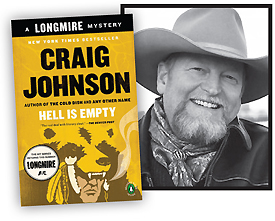 Craig Johnson
Craig Johnson
Like Hillerman, Johnson proves that a dense population isn’t necessary for a compelling police story. Johnson’s laconic hero, Sheriff Walt Longmire of Wyoming’s fictional Absaroka County, first appeared in The Cold Dish (2004). While he may occasionally ride a horse, Longmire is just as tough as his big-city brethren. He’s hunted down escaped serial killers (Hell Is Empty, 2011) and even gone to Philadelphia to apprehend criminals who attacked his daughter (Kindness Goes Unpunished, 2007). Don’t let the cowboy hat lull you—Longmire is as sharp as they come. Coming in May from Viking is a Longmire novella, The Highwayman, followed by a September release, An Obvious Fact.
 Faye Kellerman
Faye Kellerman
For much of Kellerman’s long-running series featuring cop Pete Decker and his wife, Rina Lazarus (technically they meet in the first installment, 1986’s The Ritual Bath), the action takes place where so many great police dramas unfold: Los Angeles. While Decker might be the one with the official badge, Lazarus is often the one with the brilliant ideas that solve the toughest cases. There’s eventually a cross-country move to upstate New York (Murder 101, 2014; The Theory of Death, 2015) in store for the couple, but that’s decades in the making. Kellerman weaves Jewish history and tradition in with more traditional elements of the procedural in her unique books. It should be noted that crime writing is a family affair: Kellerman’s husband, Jonathan, is a successful novelist, as is their son, Jesse. Photo by Karen Miller
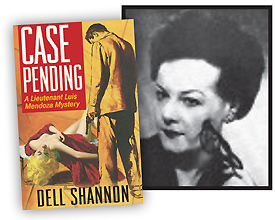 Elizabeth Linington
Elizabeth Linington
(also known as Dell Shannon and Lesley Egan) (1921–88) Under her various pseudonyms, Linington wrote about a variety of male cops when women simply weren’t doing that sort of thing (hence, perhaps, the vaguely androgynous pen names). As Shannon, she began a series in 1960 featuring Luis Mendoza, an L.A. police lieutenant. The first installment, Case Pending, as well as 1962’s Knave of Hearts, received Edgar nominations. She continued the series until her death. Set outside the hustle of L.A., and written under the Egan pen name, The Borrowed Alibi (1962) kicked off a series starring small-town California cop Vic Varallo. Though Linington’s titles, as well as those of her alter egos, are unfortunately out of print, they’re worth keeping in circulation or snatching up at a used book sale. 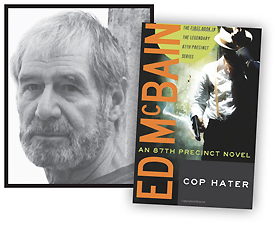 Ed McBain
Ed McBain
(also known as Evan Hunter) (1926–2005) In a run that spans nearly five decades, McBain’s 87th Precinct crime novels features an ensemble cast from one police station in the fictional city of Isola, NY (a stand-in for Manhattan). Beginning with 1956’s Cop Hater and continuing through 2005’s posthumous publication of Fiddlers, the books offer a gritty look at crime in an ever-changing New York. Each installment begins with a disclaimer—“The city in these pages is imaginary. The people, the places are all fictitious. Only the police routine is based on established investigatory technique”—and most involve McBain’s leading man, Det. Steve Carella. With over 50 novels in this series alone, McBain influenced scores of writers who followed him into the crime genre. Photo by Dragica Hunter 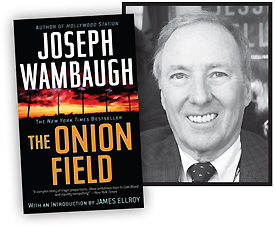 Joseph Wambaugh
Joseph Wambaugh
Using his own time as an LAPD detective as fodder for his work, Wambaugh is known both for his novels featuring the LAPD and his nonfiction, most notably The Onion Field (1973), detailing the kidnapping of two LAPD detectives and the murder of one officer during a traffic stop. A rare procedural author who writes primarily stand-alones (though he did begin a series in 2006 featuring a cop who dreams of Hollywood stardom), Wambaugh tackles a range of police-related topics from the psychological stress of being a new recruit on the force (The New Centurions, 1971) to the toll decades on the job take (The Blue Knight, 1972) with equal ease. In his latest novel, Harbor Nocturne (2012), Wambaugh explores crime in San Pedro, L.A.’s southernmost district. Photo by Mark Coggin
RELATED
ALREADY A SUBSCRIBER? LOG IN
We are currently offering this content for free. Sign up now to activate your personal profile, where you can save articles for future viewing









Add Comment :-
Comment Policy:
Comment should not be empty !!!
Debi Matlack
I have sampled several of the authors above, but my two favorites are James Lee Burke and Craig Johnson.Maybe I have a thing for country boys, but these two have dragged me into reading mainstream fiction, whereas my preference for decades has been fantasy. Nary a sword to be seen in these novels, but they intrigue and fascinate just the same. Keep 'em coming!Posted : Apr 19, 2016 11:40
xeni ping
I've read lots of Ed Mc Bain's books over the years, they are always a riveting read.Recommended.Posted : Oct 17, 2016 01:58